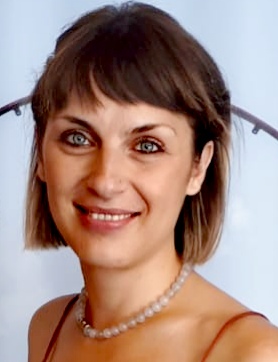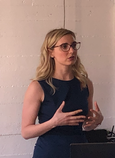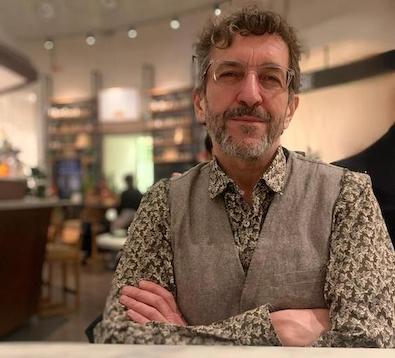Studying at the University of Verona
Here you can find information on the organisational aspects of the Programme, lecture timetables, learning activities and useful contact details for your time at the University, from enrolment to graduation.
Academic calendar
The academic calendar shows the deadlines and scheduled events that are relevant to students, teaching and technical-administrative staff of the University. Public holidays and University closures are also indicated. The academic year normally begins on 1 October each year and ends on 30 September of the following year.
Course calendar
The Academic Calendar sets out the degree programme lecture and exam timetables, as well as the relevant university closure dates..
| Period | From | To |
|---|---|---|
| I semestre (Lingue e letterature straniere) | Sep 28, 2020 | Jan 9, 2021 |
| II semestre (Lingue e letterature straniere) | Feb 15, 2021 | May 29, 2021 |
| Session | From | To |
|---|---|---|
| ESAMI LINGUE - sessione invernale | Jan 11, 2021 | Feb 13, 2021 |
| ESAMI LINGUE - sessione estiva | May 31, 2021 | Jul 24, 2021 |
| ESAMI LINGUE - sessione autunnale | Aug 30, 2021 | Sep 25, 2021 |
| Session | From | To |
|---|---|---|
| LAUREE LINGUE - sessione autunnale (a.a. 2019/20) | Nov 2, 2020 | Nov 7, 2020 |
| LAUREE LINGUE - sessione straordinaria (a.a. 2019/20) | Apr 7, 2021 | Apr 13, 2021 |
| LAUREE LINGUE - sessione estiva (a.a. 2020/21) | Jul 5, 2021 | Jul 10, 2021 |
| Period | From | To |
|---|---|---|
| Festa di Ognissanti | Nov 1, 2020 | Nov 1, 2020 |
| Festa dell'Immacolata | Dec 8, 2020 | Dec 8, 2020 |
| Festa della liberazione | Apr 25, 2021 | Apr 25, 2021 |
| Festa del lavoro | May 1, 2021 | May 1, 2021 |
| Festa del Santo Patrono | May 21, 2021 | May 21, 2021 |
| Festa della Repubblica | Jun 2, 2021 | Jun 2, 2021 |
Exam calendar
Exam dates and rounds are managed by the relevant Foreign Languages and Literatures Teaching and Student Services Unit.
To view all the exam sessions available, please use the Exam dashboard on ESSE3.
If you forgot your login details or have problems logging in, please contact the relevant IT HelpDesk, or check the login details recovery web page.
Academic staff
Bejarano Bejarano Daniel Eduardo
 danieleduardo.bejaranobejarano@univr.it
danieleduardo.bejaranobejarano@univr.it
 natascia.fregonese@univr.it
natascia.fregonese@univr.it
 piergiovanna.grossi@univr.it
piergiovanna.grossi@univr.it
 dunia.houranimartin@univr.it
dunia.houranimartin@univr.it
 elena.mattei@univr.it
elena.mattei@univr.it
 sara.paolini@univr.it
sara.paolini@univr.it
Study Plan
The Study Plan includes all modules, teaching and learning activities that each student will need to undertake during their time at the University.
Please select your Study Plan based on your enrollment year.
1° Year
| Modules | Credits | TAF | SSD |
|---|
1st foreign language2nd foreign language1st foreign literature2nd foreign literature2° Year activated in the A.Y. 2021/2022
| Modules | Credits | TAF | SSD |
|---|
1st foreign language2nd foreign language1st foreign literature2nd foreign literaturePhilology related to 1st or 2nd foreign language3° Year activated in the A.Y. 2022/2023
| Modules | Credits | TAF | SSD |
|---|
1st foreign language2nd foreign language| Modules | Credits | TAF | SSD |
|---|
1st foreign language2nd foreign language1st foreign literature2nd foreign literature| Modules | Credits | TAF | SSD |
|---|
1st foreign language2nd foreign language1st foreign literature2nd foreign literaturePhilology related to 1st or 2nd foreign language| Modules | Credits | TAF | SSD |
|---|
1st foreign language2nd foreign languageLegend | Type of training activity (TTA)
TAF (Type of Educational Activity) All courses and activities are classified into different types of educational activities, indicated by a letter.
French language 3 (2022/2023)
Teaching code
4S008342
Teacher
Coordinator
Credits
9
Also offered in courses:
- French language 3. Language and translation of the course Bachelor's degree in Foreign Languages and Literatures
Language
French
Scientific Disciplinary Sector (SSD)
L-LIN/04 - LANGUAGE AND TRANSLATION – FRENCH
Period
II semestre (Lingue e letterature straniere) dal Feb 13, 2023 al May 27, 2023.
Learning objectives
By the end of the course, the students will be able to:- master the concepts and methodologies enabling them to study neology in contemporary French, especially from a lexical point of view:- apply the methodology acquired to case-studies of literary neologisms and to their Italian translation; - show that they have reached linguistic skills in French corresponding to C1 level of CEFR.
Prerequisites and basic notions
In order to pass the exame it is COMPULSORY to have completed the exams of Language and Literature of the 2nd year.
The oral examination concerns the entire program and can be taken after obtaining C1 level.
The verification of language level is based on the certifications issued by the CLA (Centro Linguistico d'Ateneo) or other institutions recognized by the MIUR (DELF C1, DFP DALF C1, Esabac, please consult the dedicated web page: https: / /cla.univr.it/files/4-tabella_equipollenze.pdf) and is a preparatory to the oral examination.
As indicated in the "Vademecum normativo per gli studenti dell'Area di Lingue e Letterature Straniere", the validity of C1 certification is five years from the date of attainment.
*****
Pour passer l'exame il est NÉCESSAIRE d'avoir terminé les examens de Langue et de Littérature de la II année.
L'épreuve orale porte sur le programme global et ne pourra être passée qu'une fois que le niveau de compétence linguistique C1 a été acquis.
La note finale représente la moyenne entre la note de la compérence linguistique convertie en trentièmes (cf. “Vademecum normativo per gli studenti dell'Area di Lingue e Letterature Straniere") et sera en trentièmes.
Program
Neology in contemporary French: issues and perspectives
The syllabus is made up of three parts:
1. Theoretical approaches of neology. The following subjects will be dealt with: problems of definition of "neology" and "neologism"; relationship between neologisms and dictionaries as "corpus d'exclusion"; neological formations, in reference to the "matrices lexicogéniques" of J.-F. Sablayrolles); the motivations of neologisms; reactions to neologisms (in particolar to borrowings and anglicisms); official neology.
2. Semi-automatic retri(eval and analysis of neologisms; digital platforms based on large corpora (Néoveille and Logoscope). The following subjects will be dealt with: candidate neologisms and the role of linguists; the value of hapax legomena; the degrees of "néologicité"; distinction between lexical creativity and vocabulary evolution.
3. Neology in the fields of publishing, advertisement and literature; official neologisms; neologisms and wordplay in advertising; neologisms in literary texts (Laforgue, Céline, Queneau, Tardieu, ecc.); translating literary neologisms: Laforgue translated by L. Frezza, Tardieu translated by A. Bobbio, Queneau's Exercices de style translated by U. Eco and Novarina translated by G. Costa.
Didactic methods
Attending students
Lectures on the main theoretical notions, presentation of digital resources for the study of neolgisms in French and focus on literary neologisms.
The course materials and any further details will be published on the dedicated e-learning platform, which will include calendarization of the lessons and detailed program, available from the first lesson.
During the academic year the teacher will be available during office hours (see web page).
Non-attending students
Non-attending students will find, on the dedicated e-learning platform, materials and insights on the subjects of the course, as well as the detailed program. The teacher will provide support during office hours (see web page).
Bibliography:
Required reading
Attending students:
Candel D., Humbley J., Les anglicismes. Entre réalité linguistique et fait culturel, Paris, Garnier, 2017 (available at Frinzi library).
Klein J.R., « Degrés de la créativité lexicale et littéraire. Esquisse d’une typologie de la ‘néologie’ littéraire », in Ch. Jacquet-Pfau, J.-F. Sablayrolles (ed. by, La fabrique des mots français, Limoges, Lambert-Lucas, 2016, p. 123-139 (available at Frinzi library).
Sablayrolles J.-F., Les néologismes. Créer des mots français aujourd’hui, Paris, Garnier, 2017 (available at Frinzi library).
Non-attending students:
Klein J.R., « Degrés de la créativité lexicale et littéraire. Esquisse d’une typologie de la ‘néologie’ littéraire », in Ch. Jacquet-Pfau, J.-F. Sablayrolles (ed. by, La fabrique des mots français, Limoges, Lambert-Lucas, 2016, p. 123-139 (available at Frinzi library).
Sablayrolles, J.-F., Comprendre la néologie. Conceptions, analyses, emplois, Limoges-Lambert-Lucas, 2019 (available at Frinzi library).
Further bibliographical references will be given during the cours and on Moodle.
*****
La néologie en français contemporain: thèmes et perspectives
Le programme se compose de trois parties:
1. Approche théorique de la néologie. Les thèmes suivants seront traités: problèmes de définition liés aux notions de "néologie" et "néologisme"; rapports entre néologismes et dictionnaires comme corpus d'exclusion; procédés de formation des néologismes (en relation aux matrices lexicogéniques de J.-F. Sablayrolles); les motivations des néologismes; les réactions aux néologismes (notamment aux emprunts et aux anglicismes); la néologie institutionnelle.
2. Repérage semi-automatique et analyse des néologismes: plateformes numériques basées sur des corpus de vastes dimension (Néoveille et Logoscope). Les thèmes suivants seront traités: les néologismes candidats et le rôle des linguistes; la valeur des hapax; les degrés de néologicité; la distinction entre créativité lexicale et évolution du lexique.
3. La néologie dans le domaine de l'édition, de la publicité et de la littérature: néologismes officiels; néologismes et jeux de mots dans la publicité; néologismes dans les textes littéraires (notamment Laforgue, Queneau, Tardieu, Novarina); traduire les néologismes littéraires: Laforgue traduit par L. Frezza, Tardieu traduit par A. Bobbio, les Exercices de style de R. Queneau traduits par U. Eco et Novarina traduit par G. Costa.
Bibliographie:
Textes obligatoires
Pour ceux qui suivent le cours:
Candel D., Humbley J., Les anglicismes. Entre réalité linguistique et fait culturel, Paris, Garnier, 2017 (disponible à la bibliothèque Frinzi).
Klein J.R., « Degrés de la créativité lexicale et littéraire. Esquisse d’une typologie de la ‘néologie’ littéraire », in Ch. Jacquet-Pfau, J.-F. Sablayrolles (éds.), La fabrique des mots français, Limoges, Lambert-Lucas, 2016, p. 123-139 (disponible à la bibliothèque Frinzi).
Sablayrolles J.-F., Les néologismes. Créer des mots français aujourd’hui, Paris, Garnier, 2017 (disponible à la bibliothèque Frinzi).
Pour ceux qui ne suivent pas le cours:
Klein J.R., « Degrés de la créativité lexicale et littéraire. Esquisse d’une typologie de la ‘néologie’ littéraire », in Ch. Jacquet-Pfau, J.-F. Sablayrolles (a cura di), La fabrique des mots français, Limoges, Lambert-Lucas, 2016, p. 123-139 (disponibile in biblioteca Frinzi).
Sablayrolles, J.-F., Comprendre la néologie. Conceptions, analyses, emplois, Limoges, Lambert-Lucas, 2019 (disponible à la bibliothèque Frinzi).
D'autres références bibliographiques seront communiquées pendant le cours et sur Moodle.
Bibliography
Didactic methods
Attending students
Lectures on the main theoretical notions, presentation of digital resources for the study of neolgisms in French and focus on literary neologisms.
The course materials and any further details will be published on the dedicated e-learning platform, which will include calendarization of the lessons and detailed program, available from the first lesson.
During the academic year the teacher will be available during office hours (see web page).
Non-attending students
Non-attending students will find, on the dedicated e-learning platform, materials and insights on the subjects of the course, as well as the detailed program. The teacher will provide support during office hours (see web page).
*****
Modalités pédagogiques
Étudiants qui suivent le cours
Cours magistraux concernant les principales notions théoriques, présentation des ressources numériques pour l'étude des néologismes en français et mise en perspective des néologismes littéraires.
Les matériaux du cours et d'autres textes pour approfondir seront publiés au fur et à mesure sur la plateforme e-learning dédiée (Moodle), où sera aussi disponible le programme hebdomadaire et le programme détaillé.
Pendant les cours, la permanence aura lieu dans les horaires indiqués sur le site (il ne faut pas prendre de rendez-vous).
Étudiants qui ne suivent pas le cours
Les étudiants qui ne suivent pas le cours trouveront, sur la plateforme e-learning dédiée, les matériaux et les approfondissements concernant les thèmes traités pendant le cours, en plus du programme global et détaillé.
Pendant la permanence, un soutien sera fourni aux étudiants qui le demandent.
Learning assessment procedures
Oral examination, entirely in French, aims at ensuring the acquisition of theoretical notions and the ability to apply them in practical cases (analysis of neologisms).
ERASMUS students are asked to contact the teacher at the beginning of the course.
The program, bibliography and exams are the same for all students, including non-attendants.
Students attending the course will pass a part of the exam (written) in continuous assessment.
*****
Modalités d'examen
Examen oral, entièrement en langue française, visant à évaluer l'acquisition des notions théoriques et la capacité d'application à des cas pratiques (analyse des néologismes).
Les étudiants ERASMUS sont priés de contacter le professeur dès le début du cours.
Le programme, la bibliographie et les modalités d'examen sont les mêmes pour tous les étudiants, y compris ceux qui ne suivent pas le cours.
"Propedeuticità" – compétence linguistique demandée
Pour passer l'exame il est NÉCESSAIRE d'avoir terminé les examens de Langue et de Littérature de la II année.
En outre, il est demandé une compétence linguistique de niveau C1 ou supérieur relative à la langue française.
La compétence linguistique sera vérifiée sur la base des certificats délivrés par le CLA (Centro Linguistico di Ateneo) ou par des organismes agréés par le MIUR (DALF C1, DFP DALF C1; prière de consulter, à cet égard, la page web consacrée: https://cla.univr.it/files/4-tabella_equipollenze.pdf) et elle est préalable à l'examen avec le professeur de Langue française.
Evaluation criteria
The oral interview will test:
- the breadth and completeness of the contents;
- the ability to exemplify;
- clarity.
*****
L'entretien oral vérifiera:
- l’ampleur et la complétude des contenus;
- la capacité d'exemplification;
- la clarté dans l'exposition.
Criteria for the composition of the final grade
The final grade will be obtained from the average of the language level converted to /30 based (cf.the "Vademecum normativo per gli studenti dell'Area di Lingue e Letterature Straniere") and that of the oral examination and will be expressed in /30.
*****
La note finale représente la moyenne entre la note de la compérence linguistique convertie en trentièmes (cf. “Vademecum normativo per gli studenti dell'Area di Lingue e Letterature Straniere") et sera en trentièmes.
Exam language
Francese / French
Type D and Type F activities
To discover all the teaching activities accredited by the foreign teaching college click here
Career prospects
Module/Programme news
News for students
There you will find information, resources and services useful during your time at the University (Student’s exam record, your study plan on ESSE3, Distance Learning courses, university email account, office forms, administrative procedures, etc.). You can log into MyUnivr with your GIA login details: only in this way will you be able to receive notification of all the notices from your teachers and your secretariat via email and also via the Univr app.
Gestione carriere
Student login and resources
Modalità e sedi di frequenza
La frequenza non è obbligatoria.
Maggiori dettagli in merito all'obbligo di frequenza vengono riportati nel Regolamento del corso di studio disponibile alla voce Regolamenti nel menu Il Corso. Anche se il regolamento non prevede un obbligo specifico, verifica le indicazioni previste dal singolo docente per ciascun insegnamento o per eventuali laboratori e/o tirocinio.
È consentita l'iscrizione a tempo parziale. Per saperne di più consulta la pagina Possibilità di iscrizione Part time.
Le sedi di svolgimento delle lezioni e degli esami sono le seguenti:
- Polo Zanotto (vicino si trovano anche il Palazzo di Lettere e di Lingue)
- Polo Santa Marta
Assegnazione tutore
Attività accreditate D/F
Calendario didattico dettagliato
Cambio lingua curriculare
Competenze informatiche
Competenze linguistiche (prima e seconda lingua)
Competenze linguistiche in triennale (terza lingua CFU F)
Compilazione del piano didattico
Corso di Lingua portoghese
Erasmus+ e altre esperienze all'estero
Linguistic training CLA
Presentazione dei corsi di studio e Open day
Graduation
Saperi minimi
Stage e tirocini
Nel piano didattico della laurea triennale in Lingue e letterature per l’editoria e i media digitali (L11 ED-DH) è previsto un tirocinio/stage obbligatorio (CFU 6).
Le attività di stage sono finalizzate a far acquisire allo studente una conoscenza diretta in settori di particolare interesse per l’inserimento nel mondo del lavoro e per l’acquisizione di abilità professionali specifiche.
Le attività di stage sono svolte sotto la diretta responsabilità di un singolo docente presso studi professionali, enti della pubblica amministrazione, aziende accreditate dall’Ateneo veronese.
I crediti maturati in seguito ad attività di stage saranno attribuiti secondo quanto disposto nel dettaglio dal “Regolamento d’Ateneo per il riconoscimento dei crediti maturati negli stage universitari” vigente.
- Tutte le informazioni in merito agli stage per futuri studenti sono disponibili alla pagina Stage e tirocini.
- Tutte le informazioni in merito agli stage per studenti iscritti sono pubblicate in MyUnivr - come fare per - stage e tirocini.
- Tutte le informazioni in merito agli stage per le aziende sono disponili alla pagina Stage e tirocini per azienze.
Ulteriori informazioni al seguente link https://www.univr.it/it/i-nostri-servizi/gestione-carriere-studenti-lingue-e-letterature-straniere/stage-e-tirocini-lingue-e-letterature-straniere

 +39 045802 8409
+39 045802 8409










































